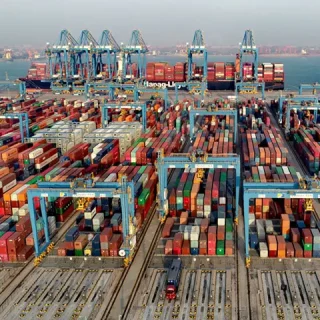Recent developments in the Shanghai Pilot Free Trade Zone indicate a shift towards facilitating cross-border data transfers, a move expected to ease the stringent regulations imposed by China’s Cyberspace Administration of China (CAC). The special economic zone in Shanghai is set to become a key player in liberalizing data export from China, which has been tightly regulated under CAC’s rules.
On December 7, 2023, China’s State Council issued its Overall Plan for Promoting High-level Institutional Opening-up in the China (Shanghai) Pilot Free Trade Zone by Comprehensively Aligning with International High-standard Economic and Trade Rules (the “Overall Plan”), aiming to align the Shanghai Pilot Free Trade Zone with international high-standard economic and trade rules. This plan marks Shanghai’s commitment to becoming a national institutional-type opening-up exemplary site. Following this, the Shanghai government introduced Implementation Plan for Shanghai to Implement Overall Plan for Promoting High-level Institutional Opening of China (Shanghai) Pilot Free Trade Zone by Comprehensively Connecting with International High-Standard Economic and Trade Rules on February 3, 2024 (the “Implementation Plan”) to regulate and encourage cross-border data transfer. This includes developing data catalogs, establishing expedient data transfer mechanisms, and creating a dedicated cross-border data service center within the Free Trade Zone.
The Implementation Plan details various measures, such as the development of “General Data Lists” and “Important Data Catalogs” for cross-border data transfers. The Lingang Special Area government has released guidelines and management measures categorizing cross-border data into different levels, with specific procedures for each category. These include pre-transfer assessments, storage during transfers, and post-transfer checks.
Additionally, the Lingang Special Area government is forming working groups across different sectors to address specific data transfer scenarios, streamlining processes for applications and reviews. There are also plans for mutual recognition of standard contracts and personal information protection certification, enhancing cooperation in digital trade and implementing new rules like “paperless trade.”
Furthermore, the Lingang Special Area is focusing on developing the International Data Industrial Park to promote industries such as data outsourcing, international cloud services, and data compliance. This initiative aims to cultivate the offshore data industry and establish the area as a model center for digital trading.
Overall, these developments in Shanghai’s Free Trade Zone reflect China’s efforts to balance the need for data security with the desire to promote economic growth through less stringent cross-border data transfer regulations.










